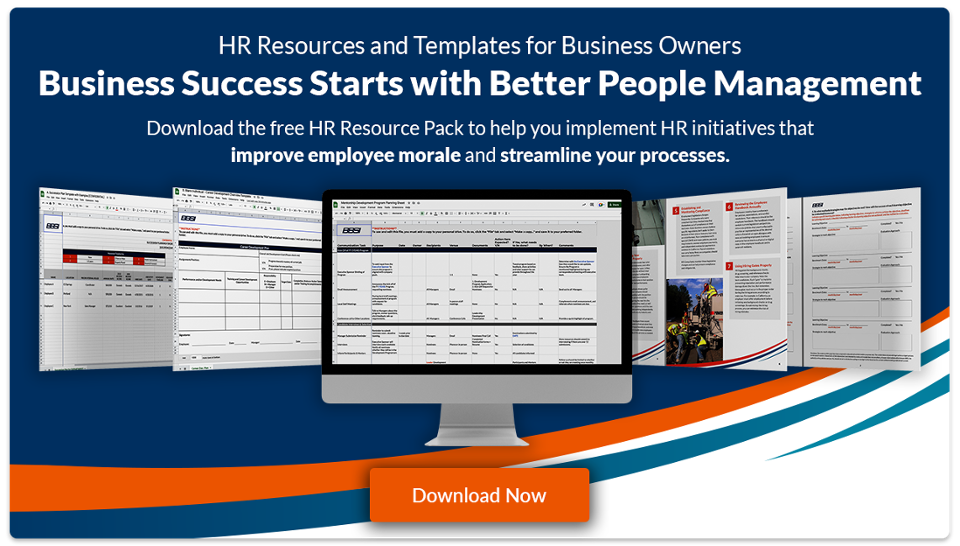
7 Business Strategies to Prioritize in 2024
Each year, business owners have the opportunity to reflect on their performance and implement new strategies. Doing so can help them resolve operational inefficiencies, improve their company’s culture, and boost their bottom line.
You should consider current economic conditions when setting new business initiatives. Otherwise, your initiatives may not yield the desired result.
If you’re wondering which business strategies to focus on in 2024, keep reading for an outline of the most worthwhile ones you should consider.
A Year in Review for Business
Before you set business initiatives for 2024, it’s important to take stock of last year’s economy, which was still recuperating from the effects of the pandemic.
Due to soaring inflation and growing interest rates, many people struggled to afford the increased cost of living. This made many workers grow unhappy with insufficient incomes and look for better employment opportunities.
Despite these volatile conditions, many companies renewed their commitment to the environment and diversity, equity, and inclusion (DEI). It’s likely that these ambitious climate and social initiatives are here to stay.
The 2023 Takeaway
What should business owners take away from these events? Improving employee experience is crucial for companies wanting to retain talent. Moreover, businesses should carefully evaluate their environmental impact and ensure adequate DEI initiatives are in place.
Business Strategies to Drive Success in 2024
Now that we’ve reviewed recent economic conditions, here are seven productive business strategies to pursue this year:
#1 Carefully Consider Your Business Goals
Your company only has a finite amount of time and resources. Thus, reviewing the goals you’ve set for 2024 is important to ensure they’re realistic and worth pursuing. If certain goals may not yield the results you need to succeed in this climate, you may want to put them aside for now and focus your efforts elsewhere.
#2 Enhance Employee Engagement
In 2023, 36% of employees planned to change jobs. With this in mind, you should cultivate an employment experience at your company that keeps workers from developing a wandering eye.
You can secure new hires’ long-term loyalty by offering them the following:
- Competitive pay and benefits
- An engaging and supportive work environment
- Opportunities to grow within your company

#3 Set up a Mentorship Program
While over a third of workers seek a job change, those choosing to stay in their current positions report that positive relationships with co-workers are the primary reason behind their satisfaction.
Thus, another way to retain more employees is to foster a company culture that allows positive relationships to flourish. A mentorship program can help you do just that.
Mentorship programs allow new employees to learn from more experienced team members. In addition to expediting new hires’ job competency, mentorship programs can improve company cohesion and co-worker relationships.
#4 Invest In Your Employees
Offer your employees career development opportunities, whether by subsidizing their education or helping them acquire relevant certifications. Investing in your employees will inspire their loyalty and keep them on the team for years to come.
#5 Review Your Company’s DEI Efforts
DEI has become integral to modern-day business. Not only can DEI initiatives help your employees feel safe, valued, and respected, but they can also bolster your business's success in several ways.
Here are a few potential benefits of DEI initiatives:
- Foster innovation
- Stronger competitive advantage
- Better business outcomes
#6 Strengthen Your Partnerships and Collaborations
Profitable businesses don’t succeed in a vacuum. Often, a strategic partnership can take your success to the next level by broadening your reach and expanding your access to critical resources.
Here are two ways that you can leverage a strategic partnership to set your business up for success:
- Partner with a local business: Local partners are more familiar with the local market and understand the customers and their unique needs. This knowledge can help businesses adapt their products and services to better meet customer needs, leading to increased sales and customer satisfaction.
- Mutually beneficial partnership: Collaborations with other businesses with service offerings that benefit your customers could provide access to new markets for both businesses. Collaborations can also expand your reach and help you provide additional value.
BBSI was built and continues to grow because of partnerships; we partner with the best service providers to provide our clients with a one-stop shop for all their business needs.
#7 Create a Crisis Management Plan
You never know when an unforeseen event could affect your business. An Incident Response Plan can help you be more prepared in these situations. When you have an Incident Response Plan, you can swiftly respond to emergencies and mitigate their impact on your bottom line.
Business Strategies for Implementing and Executing Your Goals
Now that you have some business initiatives in mind, you may be wondering how to implement them. Here are four steps to do just that:
- Develop an action plan – Before implementing your business initiatives, you need to define what they entail. Start by breaking down each initiative into actionable steps. Then, you can assign tasks and set deadlines for your employees.
- Communicate and engage your workforce – Next, you should share your plan with your employees, stakeholders, and partners. They may have valuable feedback you can use to fine-tune your initiatives.
- Monitor and adjust – You should closely monitor your plans' progress once your plans are underway. You may discover that you must adjust certain steps to improve their effectiveness. You should also take time to celebrate successes along the way. Doing so can reinvigorate your employees’ motivation and morale.
- Leverage the right tools and resources – You should seek new solutions to grow your business. For instance, outsourcing your human resources (HR) and payroll to a Professional Employer Organization (PEO) can streamline your company’s processes. Likewise, the right tech tools and software can automate certain workflows at your company. Leveraging these types of solutions can help you optimize the use of your internal time, resources, and workforce.
Maximize Your Potential With BBSI's Expertise and Support
If you want to grow your business this year while retaining your employees and optimizing your workflows, these 7 business strategies can help set you up for success.
To make time for these goals, consider partnering with a reliable PEO like BBSI. With over 50 years of experience, our recruiting, payroll, HR, workers’ compensation, and business consulting services have a proven track record of supporting our clients’ success.
By allowing us to take these tasks off your hands, you can funnel all of your focus into bringing your business initiatives to fruition. Contact your local BBSI branch today to get started.
Disclaimer: The contents of this white-paper/blog have been prepared for educational and information purposes only. Reference to any specific product, service, or company does not constitute or imply its endorsement, recommendation, or favoring by BBSI. This white-paper/blog may include links to external websites which are owned and operated by third parties with no affiliation to BBSI. BBSI does not endorse the content or operators of any linked websites, and does not guarantee the accuracy of information on external websites, nor is it responsible for reliance on such information. The content of this white-paper/blog does not provide legal advice or legal opinions on any specific matters. Transmission of this information is not intended to create, and receipt does not constitute, a lawyer-client relationship between BBSI, the author(s), or the publishers and you. You should not act or refrain from acting on any legal matter based on the content without seeking professional counsel.
